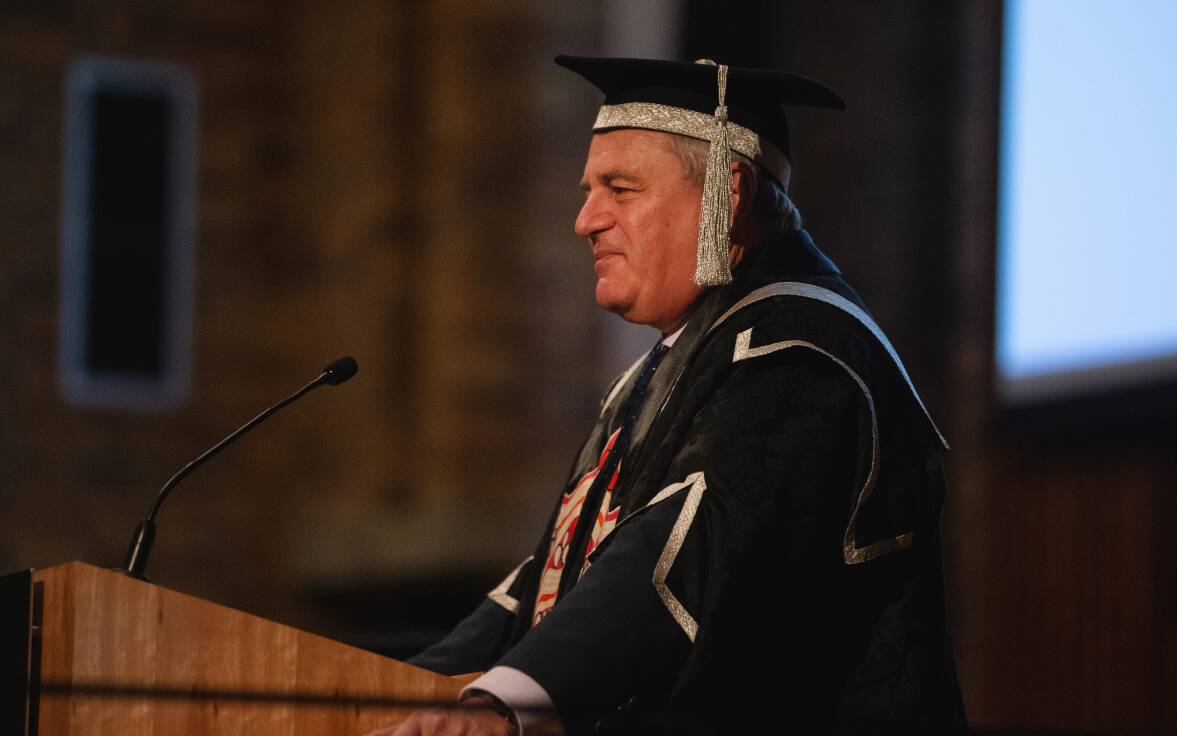
A union representative involved in protracted enterprise bargaining negotiations with University of Newcastle says it is "interesting to note" vice-chancellor Alex Zelinsky's remuneration increased 7 per cent to more than $930,000 last year.
Professor Zelinsky's new pay band of $930,000 to $939,999, up from $860,000 to $869,999 in 2021, is recorded in the university's 2022 annual report, which was tabled in NSW Parliament on the same day the university's enterprise bargaining dispute with staff landed in the Fair Work Commission.
The Newcastle Herald has been told Professor Zelinsky donated $50,000 of his 2022 income back to the university during its inaugural Gifting Day last year.
The annual report shows the university recorded a $34.6 million loss in the 2022 calendar year, compared with a $185.3 million surplus in 2021.
The university's wage bill dropped 4.8 per cent from $453.9 million in 2021 to $431.7 million last year, but a net loss in investment income and fall in government funding sent the university into the red.
University management has been embroiled in a messy enterprise bargaining dispute for almost two years with professional and academic staff and the two unions that represent them.
Academic staff rejected the university's latest offer two weeks ago and the university referred the matter to the Fair Work Commission last week, prompting National Tertiary Education Union members to vote in favour of a 24-hour strike on Thursday.
Professor Zelinsky told staff in a letter last week that the university was forecasting a $15 million to $20 million loss in 2023 and management's offer of a 13 per cent pay rise over three years was "fair and reasonable given our current financial position".
In another message to staff on Wednesday on the eve of the strike, he encouraged NTEU members to "reconsider whether a better course of action would be to direct energies toward preparing for next week's intensive bargaining".
The Newcastle Herald has been told academic staff rejected the offer because it deleted a proposal to pay casual staff the same 17 per cent superannuation rate enjoyed by permanent employees and did not adequately address concerns over staff workloads.
Professor Zelinsky's remuneration was in the $850,000 to $859,999 band in 2019 and between $860,000 and $869,999 the following two years before jumping to beyond $930,000 in 2022.
Some of Sydney's top universities, including Sydney, Macquarie and NSW, pay their vice-chancellors more than $1 million a year.
A list of the best-paid university leaders in 2021 showed Professor Zelinsky ranked sixth in NSW and the ACT at the time.
NTEU Newcastle branch president Associate Professor Terry Summers said pay rises were "a good thing" but it was "very interesting to note that the remuneration of the executive officers seems to have increased substantially".
A university spokesperson said the university council was responsible for setting the vice-chancellor's conditions of employment.
The spokesperson said salary had been an "important element" in attracting a "suitably talented" vice-chancellor to the region when the university recruited Professor Zelinsky in 2018.
"University Council supports and has applied the University Chancellors Council guidelines dealing with executive remuneration.
"As part of the renewal of the vice-chancellor's contract in 2021 we offered a contract consistent with these UCC guidelines."
The spokesperson said Professor Zelinsky had donated the majority of his 2022 pay rise back to the university on Gifting Day.
The Herald reported on Tuesday that the NTEU was concerned the university would try to use new industrial relations laws designed to break enterprise bargaining deadlocks to "drive down pay and conditions".
The laws, which come into effect on Tuesday, enable a negotiating party to seek an "intractable bargaining declaration" from the commission to resolve outstanding issues.
NTEU, Community and Public Sector Union, management and staff representatives met before the commission on Tuesday and will continue negotiations next week.
The university annual report, tabled in Parliament by Skills, TAFE and Tertiary Education Minister Tim Crakanthorp, shows student numbers have not rebounded to pre-COVID levels.
The university had just under 37,000 students last year, down about 1000 since 2019, and 15,250 new enrolments, down from 16,812 four years earlier.
Overseas enrolments were also down from pre-COVID times, from 7399 in 2019 to 5452 in 2022.
The report says international student revenues were "largely consistent with 2021 as the lingering effects of COVID-19 continued to hamper international travel".
The university's investments totalled $570.4 million at the end of 2022, down from $625.6 million the previous year "mainly due to poor investment returns".
Its overall financial position remained stable with net assets of $1.64 billion.
The report says the decline in employee expenses "reflects the continued close management of recruitment processes in 2022 while completing appointments following the Enabling Change process".
The 2022 result includes net investment losses of $25.9 million, compared with net investment gains of $151.2 million in 2021.
Federal government funding fell from $610 million to $536.7 million after one-off research stimulus funding in 2021.







